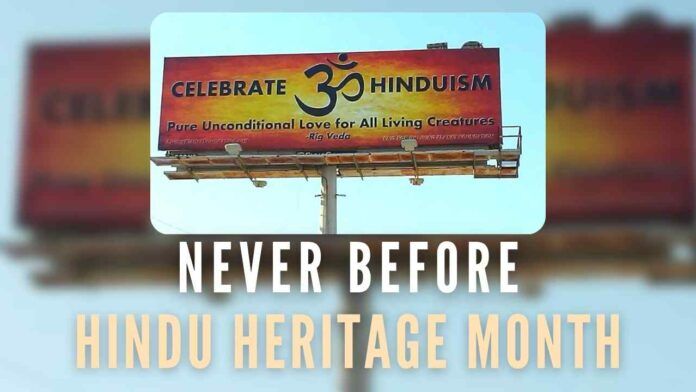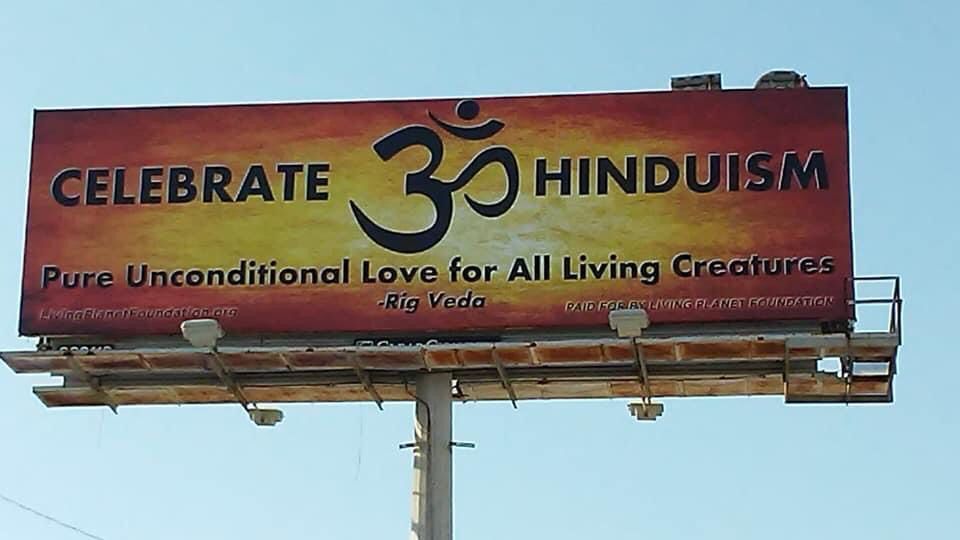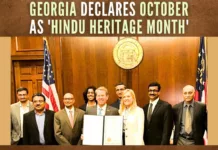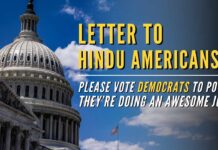
Hindu Americans unitedly, collectively celebrate Hindu Heritage Month
Generally, less is more because technology has effectively reduced people’s attention span to no more than a Tweet. However, October as Hindu Heritage Month (HHM), the first in the United States, deserves more (not less) as Hindu Americans unitedly and collectively celebrate long overdue many FIRSTS since calling the U.S. home since the 1960s. As I reviewed many proclamations and reflected on my own limited knowledge of Hinduness, I realized how little I know myself.

At the same time, I felt very proud about my heritage and Santana history which compelled me to compile and share the following list of TEN of what I am calling ‘never before’ firsts. These are not in any particular order. It is important to acknowledge that the accolades, characteristics, and/ or accomplishments of Hindu Americans included below are derived from the proclamations.
- The most awesome is the Hindu Unity in Diversity inspired by HHM. How momentous it is that majority of Hindu Americans, originating from mystic India, with a high degree of individualism, regionalism, pluralism, religious and political affiliation, and pride in one’s language, art, and culture are joining hands and creating unprecedented history?
- The first time, 3 House of Representatives, about 20 States, a dozen cities, and still counting, representing geographic diversity from the east (NJ) to the west (CA) and north (MN) to the south (TX), have issued proclamations and/ or declarations for HHM.
- Hindu Americans received support for the collective Hindu causes from both the Republicans and Democrats alike. Reportedly, Hindu faithful hold services in 32 States and 91 Congressional districts. Presumably, a critical mass of Hindu faithful lacks in other communities limiting services among friends’ families.
- About 100 organizations, and counting, from across the country registering and organizing as many events as possible (virtual and in-person). I have myself attended many conferences and Zoom talks, and still finding more. The World Bindi (and Tilak) Day celebration on May 7 and its Vedic significance were unique.
- Personally, experienced and experiencing so much information overload on chat groups, social media, and the internet about the tenets of and teachings from Hinduism/ Hindutva. It is satisfying my appetite for lifelong learning what I had not fulfilled while growing up in Bharat.
- Felt proud of our glorious heritage, the only surviving ancient civilization, culture, and customs, festivals, traditions, and values. For example, our age-old tradition of ‘Namaste’ was adopted by the world during the pandemic. Regrettably, few acknowledged it as a Hindu tradition and even fewer recognized its scientific basis, known to Hindus, of contactless greeting not to transmit germs.
- Immense gratification with American Hindus, in various proclamations, being characterized as rock-solid family structure, source of inspiration, sterling reputation, code of living, dedication, ingenuity, problem solvers, living for education, and people of steadfast conviction in a world that is everchanging.
- Long overdue recognition for contributions by Hindus in all aspects of cultural, economic, social, political, education, spirituality, yoga, meditation, Vedanta philosophy, Ayurveda, classical art, drama, and music, literature, generosity, and community service.
- Hindus leading successful careers in almost all professions like physicians, lawyers, scientists, economists, philosophers, artists, academics, business leaders, government officials, politics, information technology, and engineers, pharmacy, retail industry, and others. Perhaps, no well-paying and valued profession requiring quantitative and life skills are devoid of Hindu Americans.
- Hindus in the U.S. are recognized inclusively in a proclamation irrespective of migrating from India or other countries with sizable Hindu populations such as Pakistan, Bangladesh, Malaysia, Indonesia, Afghanistan, Nepal, Bhutan, Sri Lanka, Fiji, Caribbean, Africa, Europe, and other countries.
Seeking pride in and valuing and celebrating our heritage is what HHM stands for, in my informed view. Nothing could be more celebratory and complimentary than all of us united with one mantra that not only Hindus but “the World is one (Sarve Bhavantu Sukhina).” We will be remiss without remembering Swami Vivekanand and reaffirming that Hindu/ Santana Dharma is “the mother of religions.” It was him who said it during the World’s Parliament of Religions in 1893 in Chicago.
Let us hope that HHM will help future generations feel redeemed and reassured that their Hindu heritage and ancestry are a lot more than what they perceive. Let us not lose heart but renew our resolve to strengthen our abiding faith, do good Karma, and leave the rest to Dharma. May Hindu unity live long unshackled and unharmed by external influences and our heritage and ethos continue to be guiding light for all.
Note:
1. Text in Blue points to additional data on the topic.
2. The views expressed here are those of the author and do not necessarily represent or reflect the views of PGurus.
PGurus is now on Telegram. Click here to join our channel and stay updated with all the latest news and views
For all the latest updates, download PGurus App.
- Education and election in Bharat: Race to the top - April 16, 2024
- Kejriwal: “An Insignificant Man” or a corrupt politician with impending prison term - March 24, 2024
- Bharat’s general elections and the Model Code of Conduct - March 22, 2024











[…] Another strong indication of the growing influence of large numbers of Hindu Americans among Indian Americans is that about one-half of the States declared October as the Hindu Heritage Month. It is relevant to discuss Hindu Americans’ contributions in the U.S. because USCIRF attempted to virtually divide the Indian diaspora in the U.S. along religious lines by quoting isolated incidences of Hindu-Muslim conflicts in India. The USCIRF failed to recognize that all nations have good, bad, and ugly characters but India has more of the former type. The citations of their standing in political, social, and economic spheres were excellent. For example, I quote from one of my earlier publications: […]